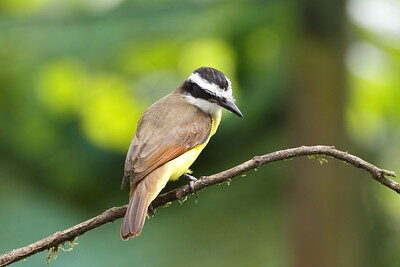Short Communication - Gardening on oceanic islands: the non-native Great Kiskadee Pitangus sulphuratus as a potential seed disperser of the alien invasive Murraya paniculata in Bermuda
Letizia Campioni, Martin Beal
Abstract:
On vulnerable oceanic island ecosystems, non-native species may form novel mutualistic interactions with one another and foster establishment. On Bermuda, the omnivorous Great Kiskadee Pitangus sulphuratus was introduced to control the invasive Anolis lizard population, but feeds on many other species of plants and animals. Here we investigated whether the Kiskadee may act as an effective seed disperser of the introduced alien plant, the Orange Jessamine Murraya paniculata. In 2022 and 2023 we collected pellets regurgitated by Kiskadees, and found that 96% (N=26) contained Jessamine seeds. In 2023 we carried out an experiment to compare the germination rates of whole Jessamine fruits with manually de-fleshed seeds and those extracted from Kiskadee regurgitates. Across groups, Jessamine seeds germinated 52.6% of the time. We found only a non-significant tendency for de-fleshed seeds to germinate more often than seeds with flesh (67% vs 49%). Our study highlights that Kiskadee can act as an effective seed disperser of Jessamine in an oceanic island ecosystem.

